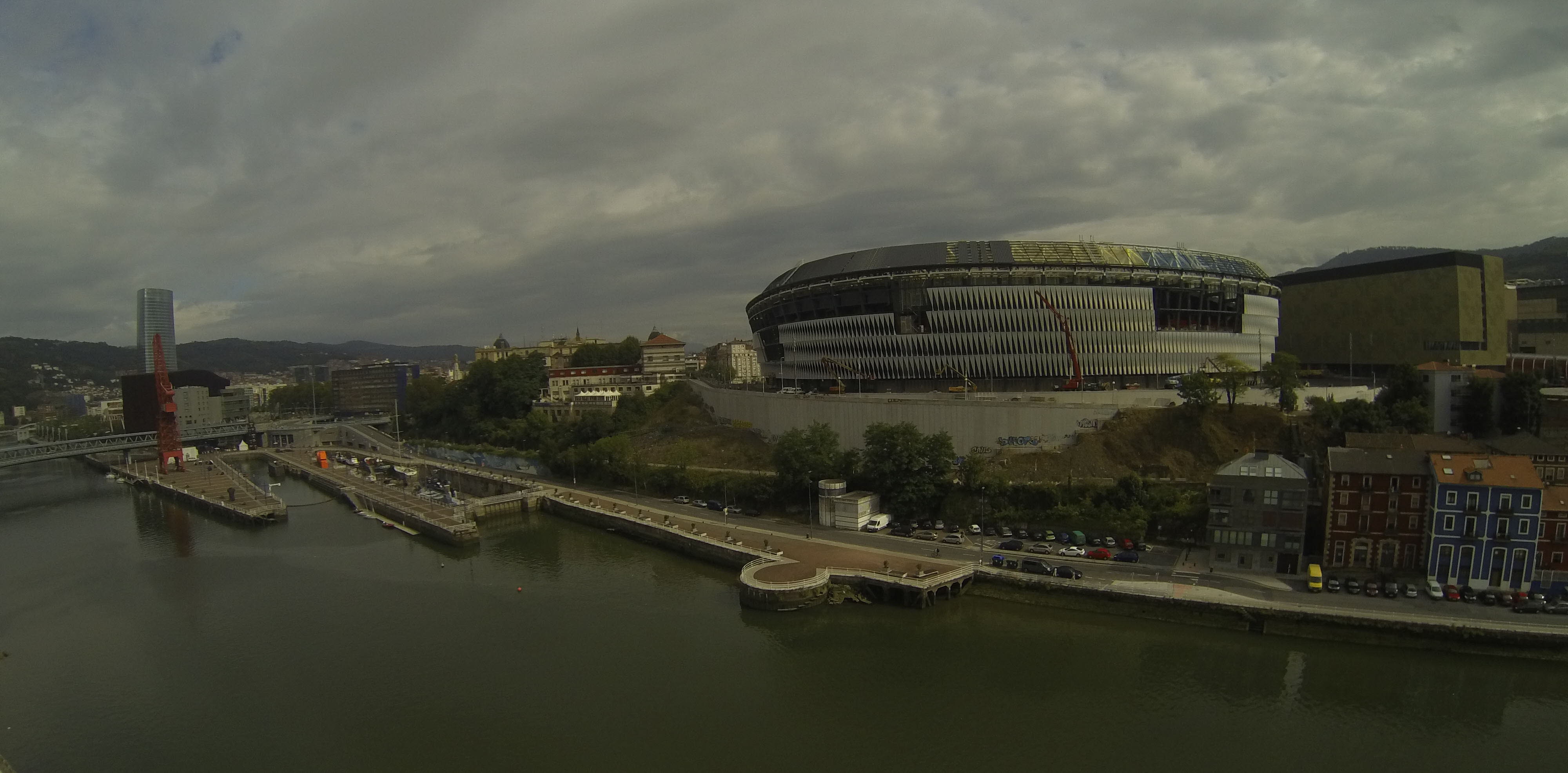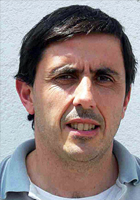by Joseba Iturria.
Basque teams, especially the Real Sociedad of San Sebastian and the Athletic Club of Bilbao, have benefited from the economic crisis affecting Spanish soccer, which has resulted in the exit of leading players in recent years with the exception of those from Real Madrid and Barcelona.
The Spanish Soccer League has gone from being known as the league of stars by attracting the best players in the world with millionaire paychecks enabled by the fictitious boom from television contracts and the breach of tax obligations, to exporting their best products.
The drop in the average level of competition mainly benefits teams like Real Sociedad and Athletic, which are based on development programs with local youth talent and economically have no need for selling players. They are the only clubs which in recent years have not accepted negotiations for the transfer of their leading players, which has placed them in a position of strength, allowing them to earn 40 and 32 million Euros for the payment of termination clauses of Javi Martínez and Illarramendi, respectively.

The new San Mamés stadium will bring a strong boost to the Athletic Club of Bilbao.| Photo: EL DIARIO VASCO
Aside from Madrid and Barcelona, all other 1st Division teams have sold their best players in recent years, mainly to the English League, which has become what the Spanish League was years ago due to new broadcasting distribution deals. Regarding these television profits, the Premier League’s lowest earning team is only surpassed by Real Madrid and Barcelona in the Spanish League.
For this reason, the Spanish League not only cannot compete with the English in attracting the best players in the world, but it has even lost its best talent from the farm system, which has fled to the British Isles. Five seasons ago (2008-09) nine players who were developed from Spanish League clubs played in the Premier League: Almunia, Cesc, Reina, Arbeloa, Xabi Alonso, Pacheco, Arteta, Garrido and José Enrique, five of whom played for Liverpool, coached by Rafa Benítez, also Spanish. This summer alone, fourteen have left for the Premier League, bringing the total up to thirty.
But not only is the Premier snatching up players from the Spanish League. This summer the Italian Calcio has signed Albiol, Higuain, Llorente, Joaquín, Callejón, Kaka, Munúa and Zapata and Dmitry Rybolovlev, the Russian tycoon, owner of the French League’s Monaco, has singlehandedly made deals with Falcao, Kondogbia, Toulalan and Abidal Carvalho in just two months.
The crisis has caused the Spanish League bubble to burst. The broadcasting company, Digital+, wants to lower its contracts signed with clubs, banks have stopped financing the signings and the multi-million Euro salaries of soccer clubs, and the Department of Treasury is forcing them to put a stop on the upward trend on its debts and drastically reduce them.
On April 30, 2008 the debt to the Treasury of teams from both first and second divisions was 607 million Euros. On January 1, 2012 it rose to 752 million, 490 of that from the twenty clubs of the 1st Division. According to data given by the Superior Council of Spanish Sports, in July, only the clubs becoming Anonymous Sports Corporations (SAD in Spanish) from the 1st Division already owed 506.5 million Euros, to which we must add the sum of the four clubs who have not yet become SADs: Real Madrid, Barcelona, Athletic and Osasuna, whose amount was not provided. Finally, it’s been leaked that Real Madrid, Athletic, Real Sociedad and Getafe would be the only four clubs up to date with the Treasury.
Also increasing this past year from 10.7 to 13 million Euros is the debt of the 1st Division clubs with Social Security, an increase that neither public opinion nor governments accept like they once did.
Thus, last year the Spanish Government, the Superior Council of Sports and the Professional Soccer League signed an agreement establishing that as of the 2014-15 season, 35% of the sums received for television rights will be allocated to ensure the tax obligations of the clubs, so the tendency to reduce the level of competition will exacerbate thereafter.
Clubs have been forced to introduce corrective measures and the Spanish League has substantially lowered the salaries of its players and almost everyone is depositing more than they spend on transfers. Only Real Madrid, Barcelona, Athletic, Villarreal and Granada have closed the summer market with a negative balance, showing that the Spanish League is exporting its best talent.
The Atlético of Madrid has deposited 78 million in sales and has spent 38 in signings, Valencia has invested only 13 of the 40 received, Sevilla 30 of 90 and Malaga 3 of 40. Teams that in past seasons fought to maintain their positions in the top half of the standings of the 1st Division such as Deportivo, Zaragoza and Mallorca have now fallen to the 2nd Division. The Espanyol club has sold as much as it could sell in recent years. And this has been the trend.
The Basque teams, Real Sociedad and Athletic are both in a different situation from all these teams. Although they have lost important players such as Javi Martínez, Amorebieta, Llorente and Illarramendi, they have not had the need nor will have the need to sell out players in the next few years and they are the only clubs, along with Real Madrid and Barcelona, who will be able to maintain and even increase the pay of their existing players.

Participating in the Champions League will allow the Real Sociedad to grow both in sporting terms and economically| Photo: EL DIARIO VASCO
In addition to the money brought in from the termination clauses mentioned above, the new San Mamés stadium will increase revenue for the Athletic Club via season pass shareholder revenues and the Real Sociedad, with the enthusiasm aroused by qualifying for the group stage of the European Champions League, will earn between 16 and 25 million Euros this season, according to different estimates.
While other clubs are reducing their budgets, the Athletic Club presented a budget of 66 million euros last season, 5 million more than the previous. And with the new San Mamés this trend will likely be on the rise unless there is a reduction with its broadcasting contract, something that will affect all clubs.
The same is true for the Real Sociedad. From the 17 million Euro budget for the 2009-10 season, it rose last year to a 45 million combined budget of the SAD and the Foundation of the club and this season revenues will exceed 90 million Euros. Its Board will be challenged to balance the budget due to the inferior cost levels – a wonderful problem to have.
The team from Navarre, Osasuna, is far from the other two Basque stronghold clubs, presenting a budget of 30 million euros last season and a net debt of 31.5 with the two combining for a downward trend. Competitively, it has also weakened in recent years, but the decline of the competitive level overall of the 1st Division Spanish League will help with Osasuna’s goal to stay at this level since its rise to the 1st Division in 2000.
The Spanish soccer crisis is helping Basque clubs in the lower categories as well. Before, in the categories of 2nd B and even in 3rd Division, substantial salaries could be seen. Nowadays, he who wants to earn money either has to play in the highest 1st Division category or emigrate.
According to data published by the daily sports newspaper, “Marca”, in the 2009-10 season there were 73 players of Spanish nationality in other leagues. In the 2011-12 season the number climbed to 163 and this season there are already 232. Not only are the big stars migrating, but also players who in past seasons may have had high salaries in 2nd Division and decent salaries in 2nd B. Now not only have the attractive deals disappeared but the guarantee of actual payment is also scarce so players emigrate.
Since the average level of play in the 1st Division has worsened, and even more so in the 2nd Division and especially in 2nd Division B, it has allowed Basque soccer to have two representatives in the silver category in which there were none since Real Sociedad returned to 1st Division in 2010. Alavés and Eibar managed to rise to 2nd last season with a number of Basque players on its roster. And Athletic B also was on the verge of doing so.
Until recently the group in which the Basque teams were playing was the weaker of the 2nd B Division and the players of the Basque Country were signing with clubs across the peninsula. Now, few can and want to move away and other players are coming in from nearby. The crisis also affects Basque teams, who have seen reduced revenues substantially, but the success of the farm system allows them to cope better, as in the case of Athletic Club and Real Sociedad at the highest level.
Finally, in regards to the Northern Basque Country (Iparralde), it is known that soccer does not have much impact and professional soccer even less so. Rugby is without a doubt the number one sport in the Northern Basque provinces. In addition, the French Soccer League, the Ligue, has little to do with the Spanish one. Nor do they have much in common with regard to their economic and financial situation, which has been the focus of this analysis.
 |
Joseba Iturria is a sports journalist for the newspaper GARA |
| @GARA_jiturria | |





Be the first to comment on "Basque Teams, Benefiting from the Economic Crisis of Spanish Soccer"